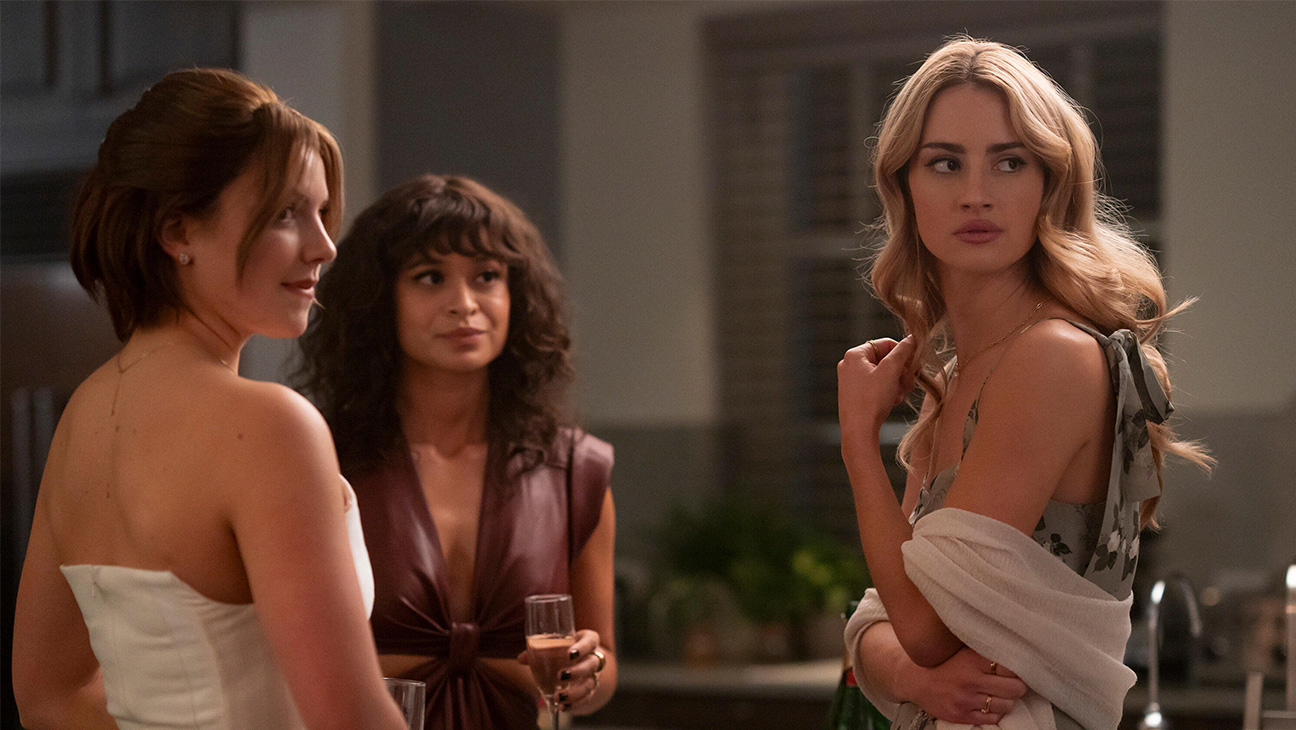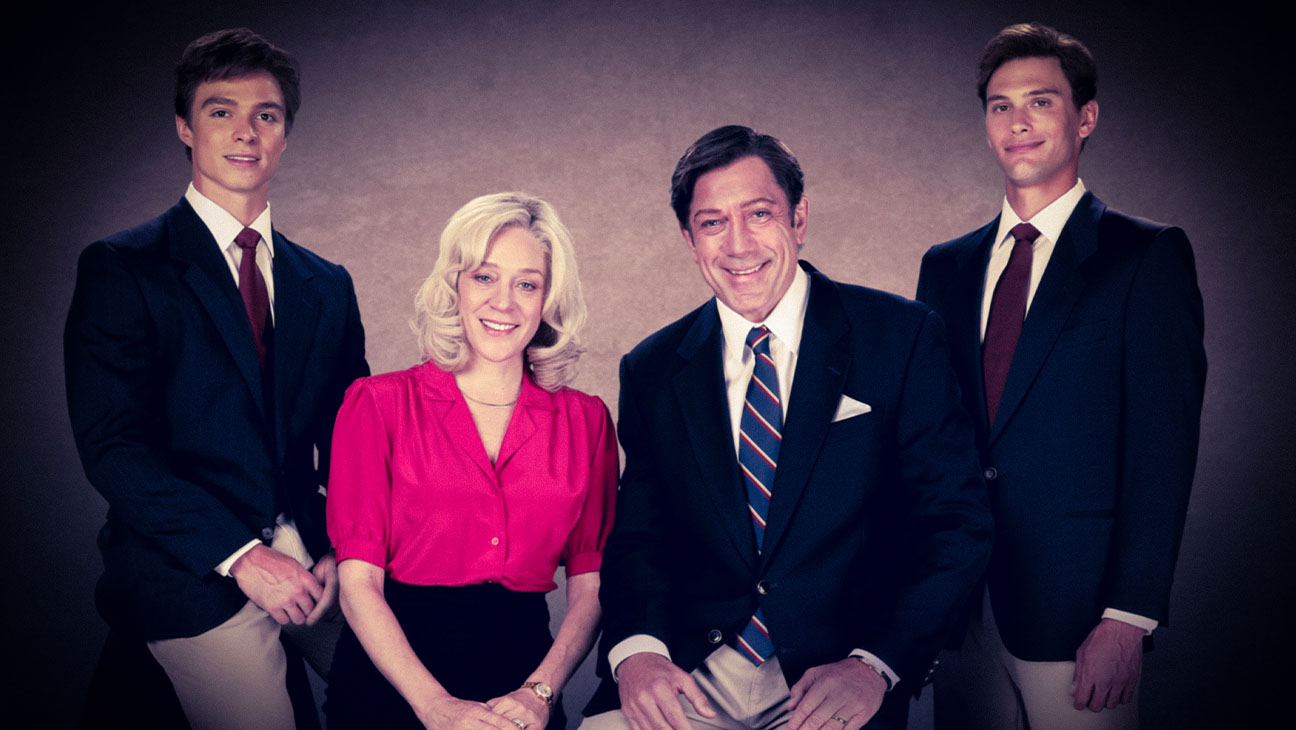For 20 years, 20th Century Fox’s X-Men films and associated spinoffs built up a world that could stand separately from the MCU and DCEU. While the results were not always what audiences, filmmakers or even the actors desired, there was a certain underdog quality to the X-franchise. Just when it seemed like Wolverine had popped his last claw, Magneto and Xavier had played their last chess game and doors to that iconic school for gifted youngsters would never open again, the X-movies still managed to surprise us. Just when we thought they were down for the count, they came back stronger.
While the franchise as a whole is mired in continuity issues and broad, sometimes inexplicable deviations from the source material, audiences were always kept on their toes. It was fun watching these movies without ever knowing where we were headed next. While other cinematic universes banked on maps and timelines for a decade of future-dated projects, the X-Men series always seemed to fly by the seat of its pants, and you’d never quite know who was being introduced next or which character would be subject to a spinoff. While there is understandably a great deal of excitement to see the X-Men in the MCU, I’d be lying if I said I wasn’t immensely curious about seeing those projects that had never happened: sequels to The New Mutants, Gore Verbinski’s Gambit, X-23, X-Men: Fear the Beast and the two sequels that were planned to follow Dark Phoenix. Would any of them have been good? I suspect Verbinski’s Gambit would’ve been great, but we’ll never know. The point is that these movies took swings and told stories without being overly concerned about continuity. That’s a quality that made these films worth keeping an eye out for, at the very least.
With this week’s release of Deadpool & Wolverine — which re-visits the world of the Fox films, maybe for the last time — it felt like a good time to look back on the wild highs and lows of the X-franchise. As a note, I’d like to mention that regarding the credible allegations against filmmaker and producer Bryan Singer, I’ve attempted to rank these films on merit alone. With that being said, let’s open the doors to the house that Xavier built once more.
-
14. X-Men Origins: Wolverine (2009)
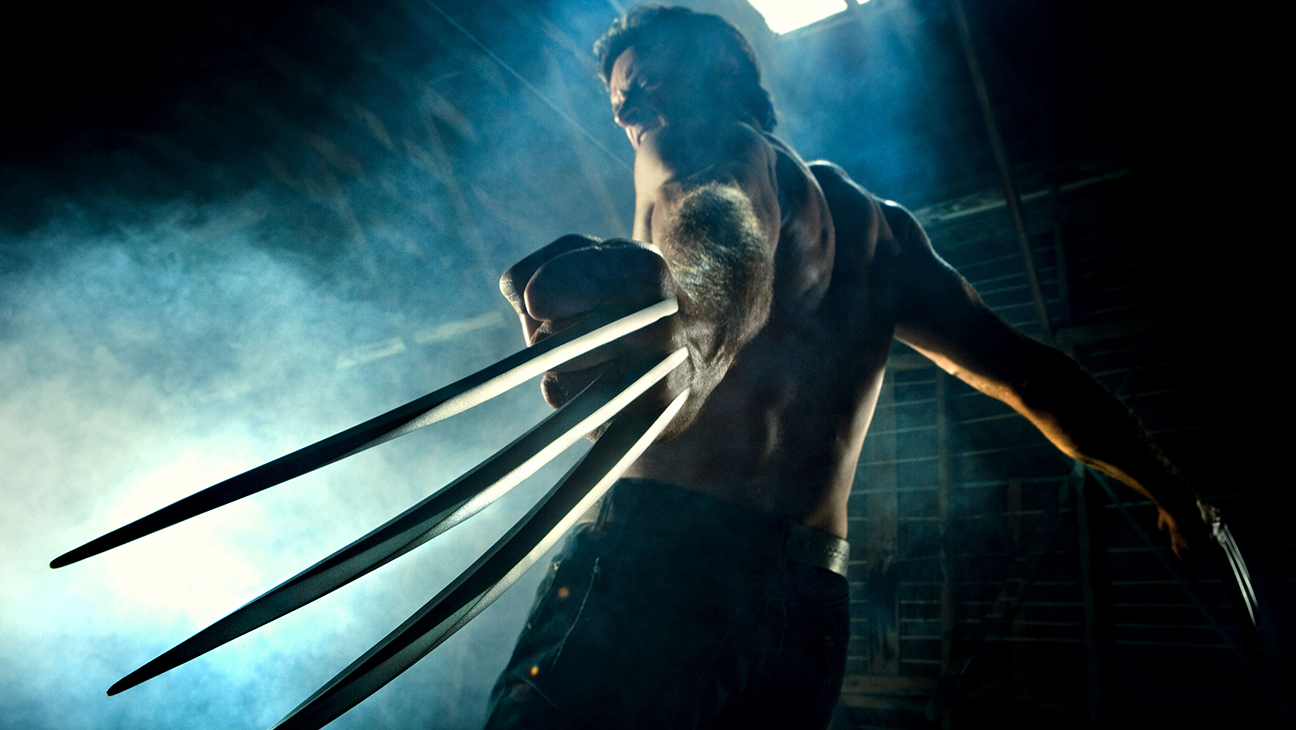
Image Credit: Courtesy of Marvel Infamously, Deadpool & Wolverine is not the first time Ryan Reynolds and Hugh Jackman’s characters crossed paths and traded blows. While Gavin Hood’s film has become a go-to gag in the Deadpool film series, audiences at the time had high expectations for Wolverine’s first solo film. The X-Men films had teased Logan’s origin story and history as the experimental Weapon X. The comics had found tremendous success with Bill Jemas, Joe Quesada, Paul Jenkins, Andy Kubert and Richard Isanove’s Origin (2001), which finally revealed the untold past of Logan before Weapon X, and his true name: James Howlett.
While the film would pull from Origin, and Barry Windsor-Smith’s Weapon X (1991), it also crammed a whole bunch of other stuff in there, essentially becoming another X-Men film that became too wrapped in its overwhelming number of characters to focus on Logan’s emotional journey. Seriously, there was no need for Charles Xavier (Patrick Stewart) to show up, or to have an entire seemingly random scene showing Cyclops’ (Tim Pocock) origin. Similarly, Gambit (Taylor Kitsch) and Blob (Kevin Durand) have some fun moments, but they don’t fit the narrative. And Deadpool, made into Weapon XI, a mute final boss with a “pool” of other mutants’ powers placed within him feels more like a Mortal Kombat baddie than the beloved Merc with a Mouth.
It’s clear Wolverine was attempting to set up a host of other Origins films. Throw in some truly rough CGI (the bathroom claws) and a ridiculous memory-erasing bullet, and well, it’s not great. But it’s not all bad. Jackman’s commitment to the role never wavers, and Liev Schreiber makes for a compelling Victor Creed/Sabretooth who’s far closer to the comics than what came before. If the film had been able to retain focus and make a stab at an R-rating, Wolverine would’ve ended up with a strong trilogy of solo adventures.
-
13. X-Men: The Last Stand (2006)
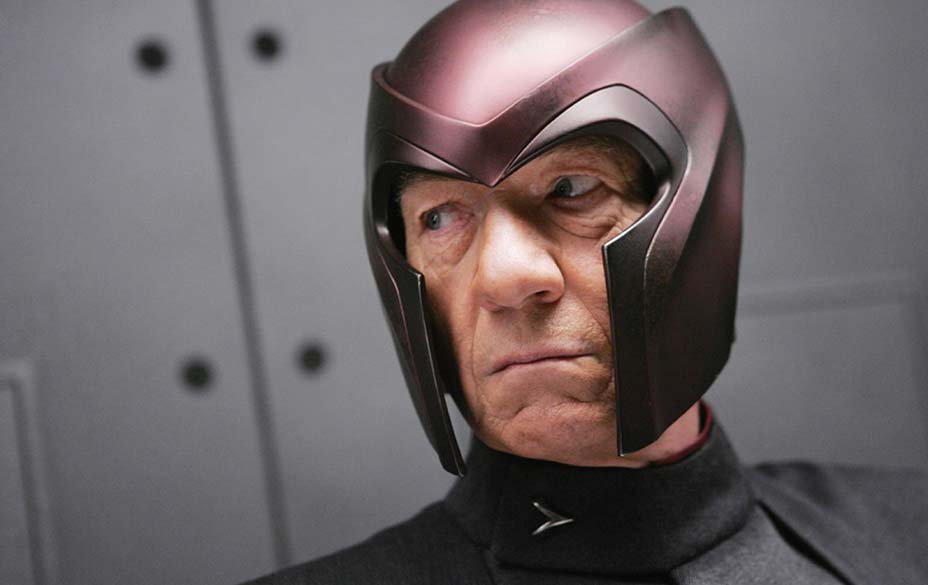
Image Credit: Twentieth Century Fox Film Corp./Photofest Brett Ratner was never anyone’s first choice to direct an X-Men film. And from the film itself, and the stories that followed, it’s not hard to see why. The Last Stand smashes together Chris Claremont and John Byrne’s The Dark Phoenix Saga, widely considered to be the best X-Men story, along with the Gifted storyline from Joss Whedon and John Cassaday’s then-more recent Astonishing X-Men. The film doesn’t serve either story well, and it all too hastily kills off Cyclops (James Marsden), sidelines several mainstays like Mystique (Rebecca Romijn) and Rogue (Anna Paquin), and introduces a bunch of new characters audiences had been clamoring to see — Kitty Pryde (Elliot Page), Beast (Kelsey Grammer), Angel (Ben Foster) and Juggernaut (Vinnie Jones), none of whom get much time to shine (although Grammer’s Beast is a welcome addition).
Famke Janssen does well with what the film decides to do with the Phoenix, which is to make her into a kind of demonically possessed powerhouse, and Hugh Jackman, Patrick Stewart and Ian McKellen all remain stalwarts of the franchise. A third act that features Magneto lifting the Golden Gate Bridge and Logan professing his love for Jean, while she tries to incinerate him, are highlights, along with John Powell’s score. But all in all, there’s just something a bit too studio-mandated and manufactured about it.
-
12. The New Mutants (2020)
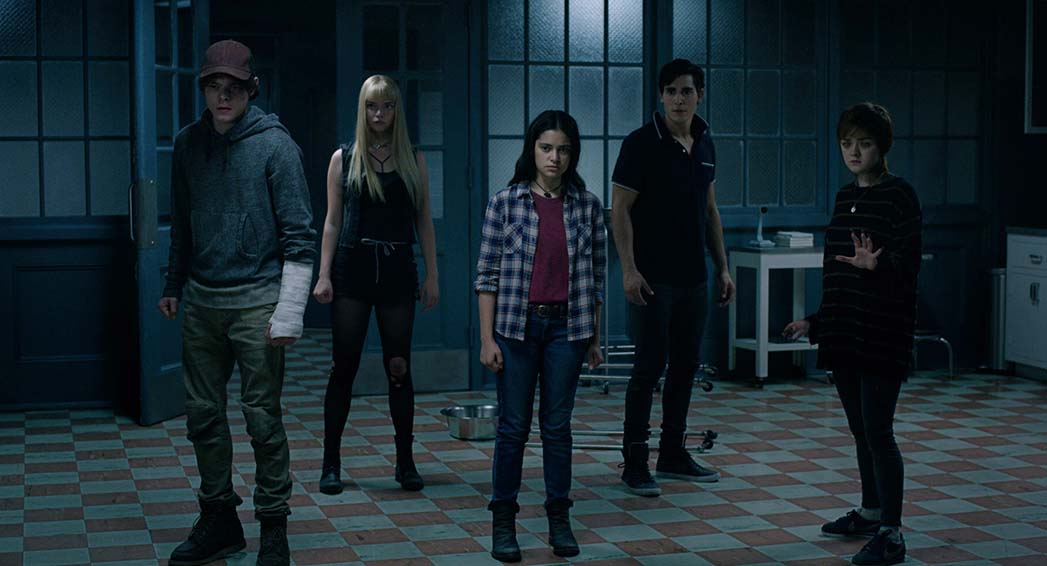
Image Credit: Twentieth Century Fox Film Corporation I don’t believe a movie can be cursed. But Josh Boone’s The New Mutants put that theory to the test. Boone signed onto the film in 2015, back when it seemed that Fox’s X-films could still have a table all to themselves among the MCU and DCEU. The New Mutants, based on Chris Claremont and Bob McLeod’s comic series of the same name, was proposed to be the first of a trilogy, with each film tackling a different horror subgenre. The idea seemed new and fresh at the time, and it had several stars who had gained a recent following: Anya Taylor-Joy, Games of Thrones’ Maisie Williams, and Stranger Things’ Charlie Heaton, who were cast as Magik, Wolfsbane and Cannonball, respectively. And with newcomer Blu Hunt cast as the film’s lead Mirage, it also marked the first time an American Indian superhero would be prominent on-screen. The film also encountered some controversy with its casting of Henry Zaga as Sunspot, and Alice Braga as Dr. Cecilia Reyes, two characters who are Afro-Latino in the comics.
With Boone crediting A Nightmare on Elm Street 3: Dream Warriors (1987) as a primary influence, The New Mutants telling the story of powerful young mutants being held captive in a medical facility seemed like a plausible means to expand the X-Men franchise. And it might have been, if not for Disney’s acquisition of 20th Century Fox that sent the film into limbo, to be later released during the pandemic of 2020, without the reshoots Boone had planned. The final result is pretty decent. Though, at times, it feels like a made-for-TV movie meant to launch a series, it does paint an interesting corner of the Marvel Universe that would’ve been fun to see evolve. While it’s more dramatic, and far less action-focused than the other X-films, The New Mutants is populated with interesting, flawed characters who don’t fit the superhero model. While it barely made a blip upon release, it does feel like one of those films that could find an audience much later down the line who will dub it a “hidden gem.”
-
11. Dark Phoenix (2019)
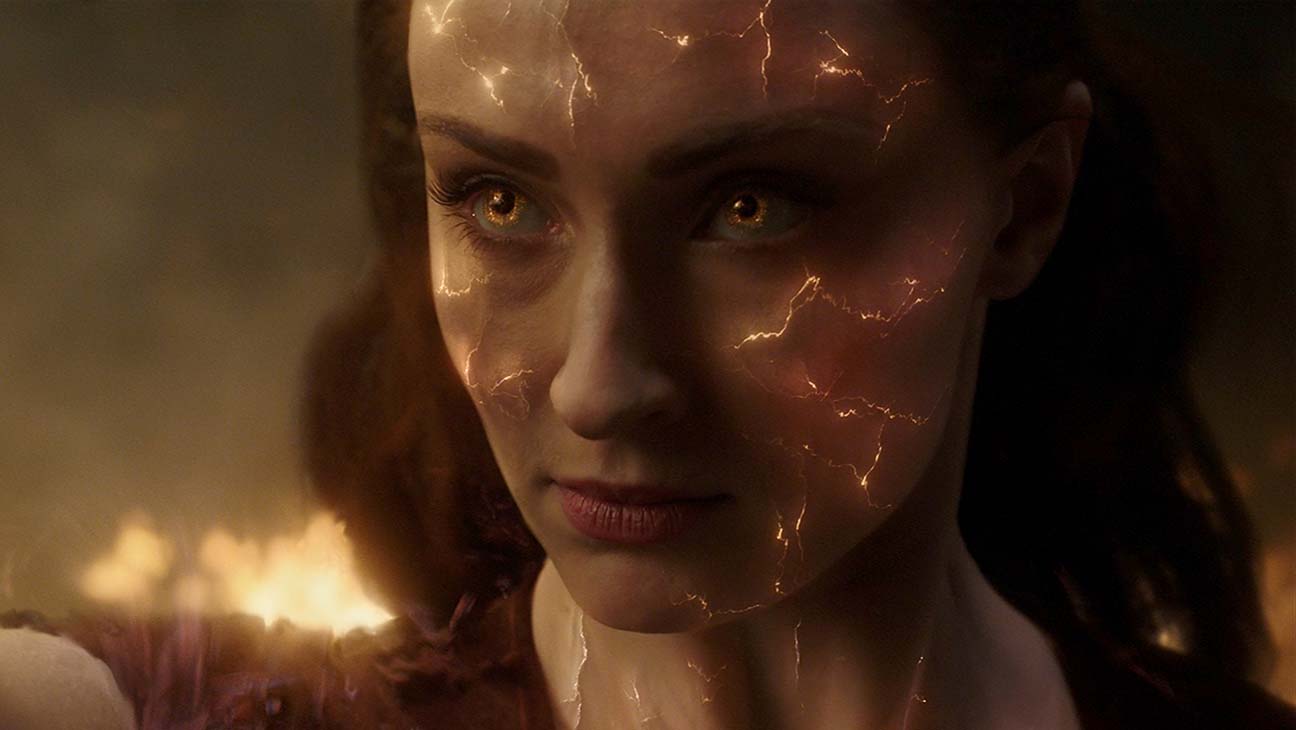
Image Credit: Twentieth Century Fox Simon Kinberg took The Dark Phoenix Saga for another spin in the new continuity established by X-Men: Days of Future Past (2014). And, while plenty will tell you otherwise, I think it’s an improvement over The Last Stand’s telling and a pretty decent film in its own right. Initially, the film was a much bigger affair, like the previous X-Men films. But rewrites that led to the villains of the film being changed several times over, and the success of Logan (2017), led to a smaller and more intimate film (narratively and not budget-wise) — which was an interesting direction, but didn’t gel with what the series had previously offered.
Jean Grey (Sophie Turner) does encounter the Phoenix Force in space this time, and we do get to see her struggle with these powers and the overwhelming sense of anxiety she feels despite Xavier (James McAvoy) and Cyclops’ (Tye Sheridan) attempts to help her. Turner’s Game of Thrones experience comes in handy and she does a good job balancing the fear of her newfound powers, but also a lust to exhibit them. When she’s offered a new path by Vuk (Jessica Chastain), an alien of the D’Bari race whose planet was destroyed by the Phoenix Force, she’s pitted against her former teammates. It’s clear Chastain was not meant to play such a minor character in the Marvel Universe. Earlier drafts of the script had featured Emma Frost and the Hellfire Club, and later the Skrulls as the alien adversaries, rumored to be changed to D’Bari as a result of Captain Marvel (2019) utilizing the Skrulls in the Marvel Studio production. So, while Vuk ends up being a disappointment, McAvoy’s Xavier and Michael Fassbender’s Magneto remain highlights, as does a third-act train battle. While it’s clear the film should’ve been two movies, as was originally discussed by Kinberg, the result has more strengths than weaknesses, minding that this isn’t an adaptation of the comic storyline. Additionally, Hans Zimmer, out of nowhere, dropped one of the best scores of his career with this film. Even if you don’t revisit the movie, revisit the soundtrack.
-
10. X-Men (2000)
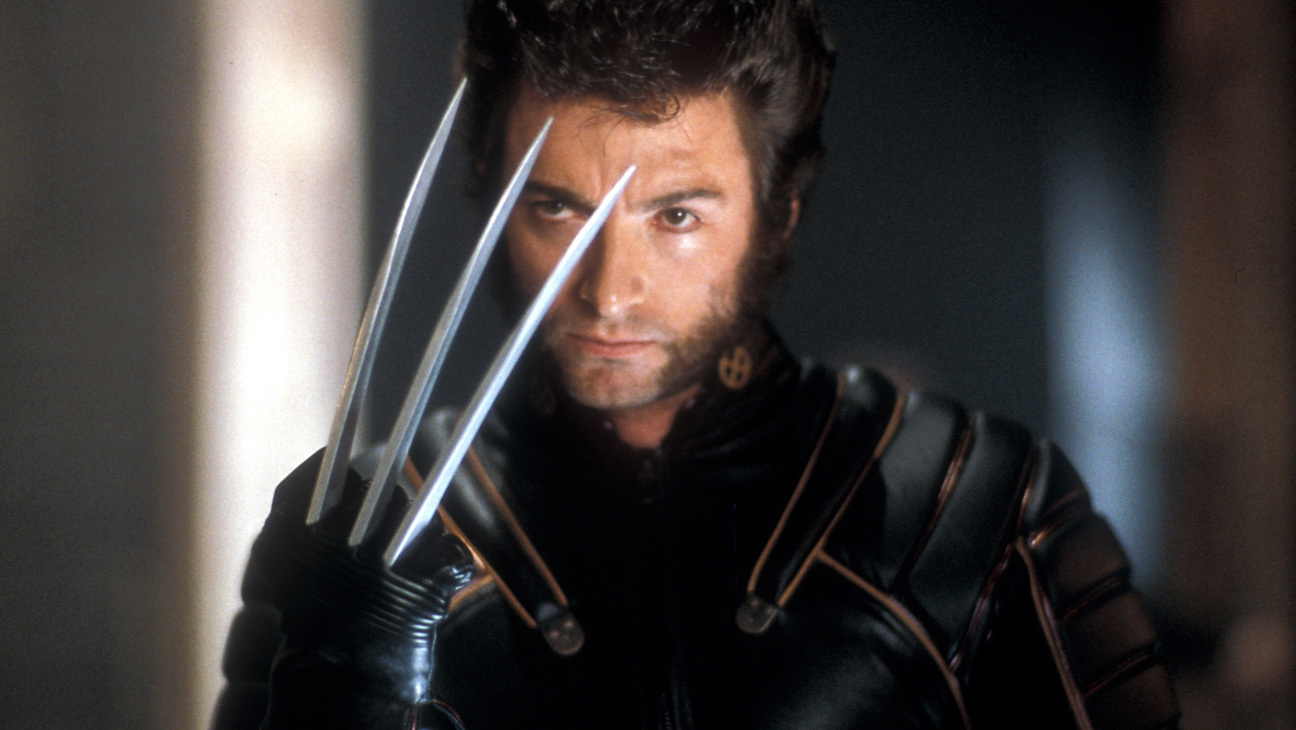
Image Credit: Photofest Blade proved Marvel Comics had a place in Hollywood in 1998. Two years later, X-Men proved they could stay and successfully bring some of Marvel’s more popular characters to life. The film, which brought Kevin Feige into the Marvel fold, takes a far more grounded approach to the comics and, much like Blade, is positioned as a science fiction film in the vein of The Matrix (1999) rather than a superhero movie. This is both to the film’s benefit and detriment. On one hand, the grounded nature of the film does add a layer of plausibility to this world of superpowers, which had never been explored to this degree in a live-action studio film before. The haunting Holocaust opening sets the stage for something far different than what many at the time believed comic book movies could showcase.
But on the other hand, the X-Men comics, and X-Men: The Animated Series, which brought in plenty of younger audiences, are beloved for their big swings, bold costumes and soap opera dramatics, all set within a world that features time travel, cosmic gods, vampires, demons and extensive family trees. All of those aspects would be too much for an introductory X-Men film, but it does feel that the overall lack of knowledge and interest in the source material, and the insistence on the black leather costumes, does remove some of the fun, and dare I say, uncanny nature from the X-Men. Especially since this self-seriousness doesn’t quite gel with the film’s pretty silly third act and use of villains like Sabretooth (Tyler Mane) and Toad (Ray Park).
The film’s greatest success is in the casting of its three principal characters: Logan (Hugh Jackman), Charles Xavier (Patrick Stewart) and Magneto (Ian McKellen). While none of the other characters, most egregiously Storm (Halle Berry), get quite as much to chew on as those three, their histories as theater actors give the film a level of gravitas that’s hard not to be pulled in by. And while Jackman has only improved in his depiction of Wolverine over the years, X-Men is a strong reminder of how great he’s always been.
-
9. The Wolverine (2013)

Image Credit: Courtesy of Marvel James Mangold’s first foray with Wolverine partly adapted Chris Claremont and Frank Miller’s Wolverine (1982). Even in its deviations, and introduction of other mutants, Mangold’s film remains focused on the core of the character as he is brought to Japan so he can repay a life debt to a man he saved from Nagasaki in 1945, Yashida (Haruhiko Yamanouchi), a wealthy industrialist. Accompanied by a young mutant with the ability to foresee other’s deaths, Yukio (Rila Fukushima), Wolverine becomes swept up in a conspiracy involving his healing factor, the yakuza, and Yashida’s son, Shingen (Hiroyuki Sanada), and daughter, Mariko (Tao Okamoto). Handsomely made and cast, The Wolverine delivers the kind of somber, internal, solo movie fans of the character wanted the first go-around, particularly the “Unleashed Unrated Edition” which adds some blood to the PG-13 proceedings.
The strength of this film makes me long for a timeline where Mangold had been able to direct the first film, and adapt the pathos of Origin and the body horror of Weapon X. There are moments in the second act that drag a little, and the third act perhaps becomes a bit too big in its play for summer blockbuster success, when an expertly crafted sword fight would’ve sufficed. Ultimately, The Wolverine succeeds in giving a character who spends much of the film’s runtime wishing for death a new reason to live, and a new reason for the X-franchise to live on as well.
-
8. Deadpool (2016)
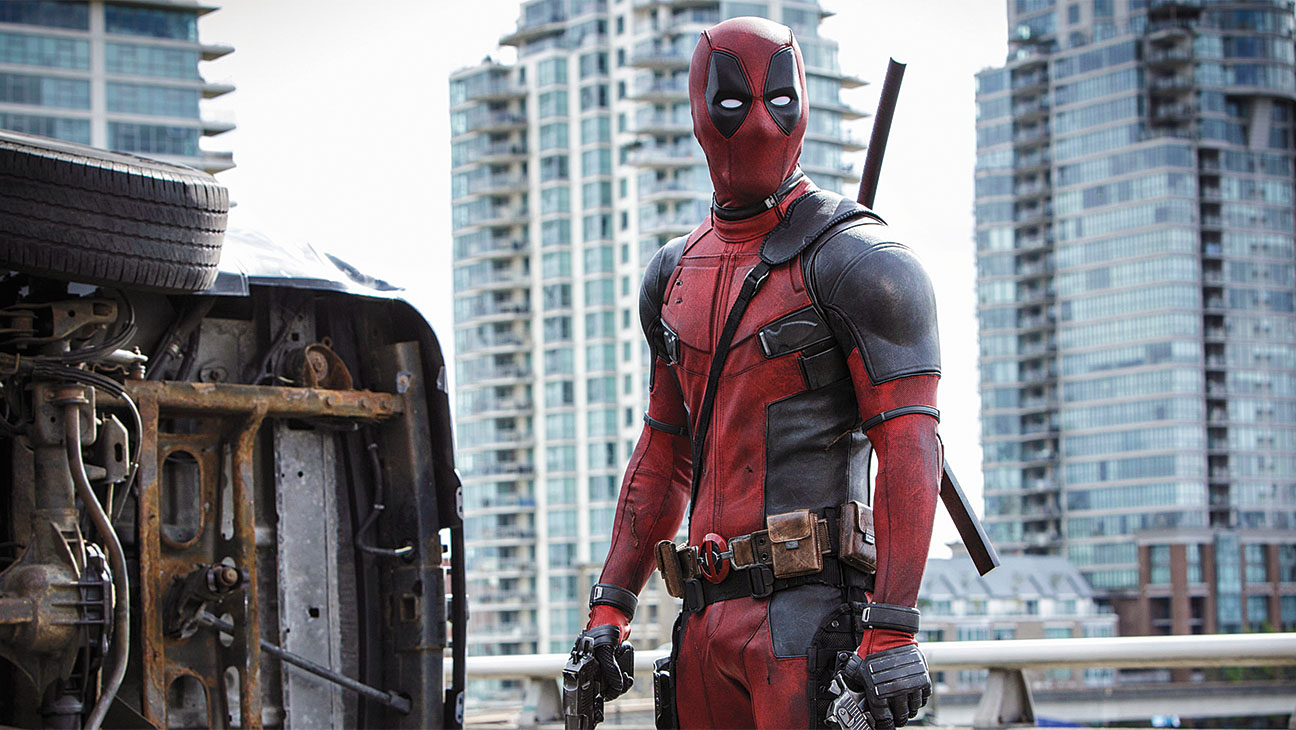
Image Credit: Joe Lederer/Twentieth Century Fox Film Corporation Deadpool is a film manifested by true passion that, at one point in time, seemed like a pipe dream rather than one of Marvel’s most successful franchises. Ryan Reynolds set his sights on Deadpool in 2004 following his work on the Marvel film, Blade: Trinity (2004). He finally got his opportunity in X-Men Origins: Wolverine, originally proposed to be a cameo before becoming a more central role. We’ve already covered how that faired, but still, there was potential for the character to be divorced from the continuity of that film and reintroduced.
By 2011, Deadpool gained momentum and Fox hired Tim Miller, a visual effects artist who worked on some of the X-Men films, to direct. Unfortunately, the financial disappointment and scathing reaction to Green Lantern (2011) made execs at Fox nervous about the concept. Miller was allowed to shoot test footage, which he and Reynolds leaked online in 2014, drumming up support for the film. Considered a risky venture in the age of PG-13 Marvel blockbusters, Deadpool was given a modest $53 million budget, which is very evident in terms of how the film looks. But Deadpool blew away expectations, not only grossing nearly $800 million worldwide but it was also nominated for two Golden Globes. The sarcastic, self-loathing, fourth-wall-breaking mercenary was the role it felt like Reynolds’ entire career had built towards. He simply got the character on an intrinsic level, as both an exercise in debauchery and as a romantic at heart, whose experimental cancer treatment had not only unlocked his latent mutant abilities but also left him severely scarred.
While set within the world of mutants, and featuring X-Men Colossus (Stefan Kapicic) and Negasonic Teenage Warhead (Brianna Hildebrand), Deadpool doesn’t rely on those connections to pull audiences in. Instead, it treats the character like the main event and creates an engaging love story between Wade Wilson and Vanessa Carlysle (Morena Baccarin) that’s just as much of a draw as the foul-mouthed violence.
-
7. X-Men: Apocalypse (2016)
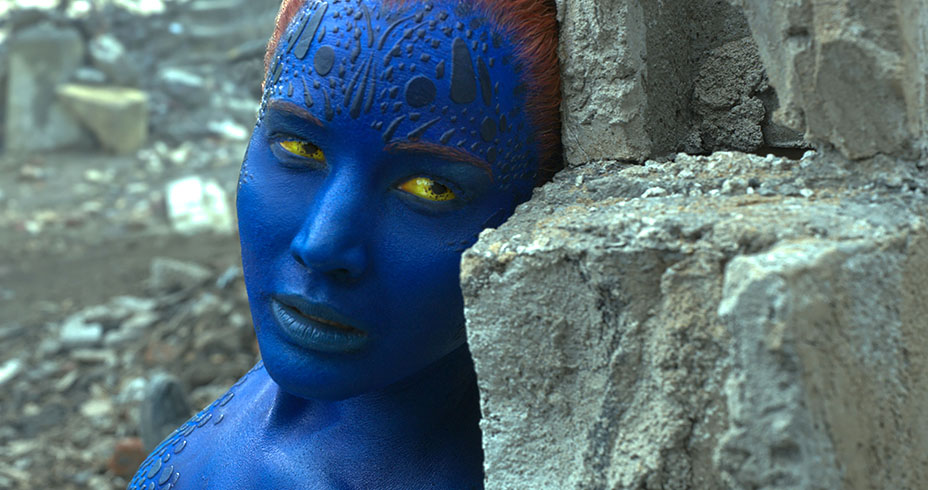
Image Credit: Courtesy of Twentieth Century Fox Film Corporation Sure, it’s not one of the best-loved entries in the X-franchise, but in terms of the mainline X-Men series, it’s the one that feels the most like the ’90s comic books I grew up on. Introducing younger versions of familiar X-Men characters Jean Grey (Sophie Turner), Cyclops (Tye Sheridan), Nightcrawler (Kodi Smit-McPhee) and Storm (Alexandra Shipp), along with returning players Xavier (McAvoy), Magneto (Fassbender), Beast (Nicholas Hoult), Quicksilver (Evan Peters) and Mystique (Jennifer Lawrence), and new members Archangel (Ben Hardy) and Psylocke (Olivia Munn), Apocalypse is rife with mutant action, showcasing characters and powers that the other films often sidelined in favor of Wolverine.
While the X-Men can’t completely shed their black uniforms, there is a boldness to this film and a greater sense of spectacle than some of the past X-Men movies. For instance, we get a psychic mind battle between Xavier and Apocalypse in the same movie where we see Magneto destroy the remains of Auschwitz. It’s this balance of somewhat silly comic book ideas, mixed with striking images that comment on real-world horrors that have made the X-Men such a constant top-seller in the comic book world. While the make-up for Oscar Isaac’s Apocalypse leaves something to be desired, compared to the cleaner look of his comic book counterpart, he does have fun in the scenery-chewing role and creates true world-ending stakes. Of all the central X-Men films, this is the one that feels most like a superhero movie, and because of that factor, your mileage may vary.
-
6. X2 (2003)
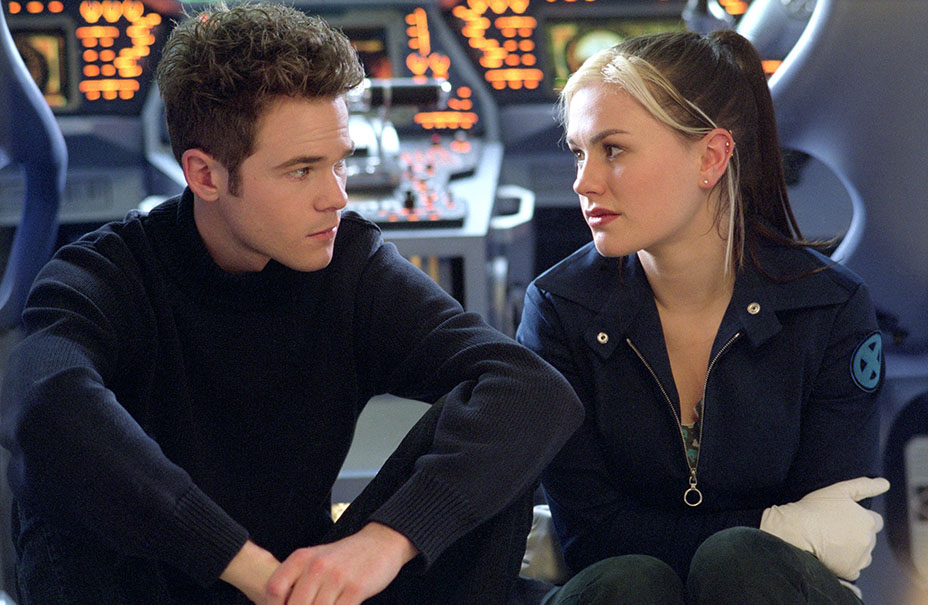
Image Credit: 20th Century Fox/Photofest For a time, before Nolan reimagined Batman, before the MCU and cinematic universes, X2 was widely considered to be the best superhero film. Those who pursued the message boards of Superhype or read Wizard Magazine back during this time, surely remember when X2 was considered the peak of what these films could achieve. A comic historian and professor of mine, in 2010, still regarded it as the best superhero comic adaptation. All of this is to say, yes, X2 is a good movie. But is it a great one?
Inspired primarily by Chris Claremont and Brent Eric Anderson’s X-Men: God Loves, Man Kills, the follow-up to X-Men leans a little further into social commentary, though is primarily focused on Wolverine learning more about his past. When Colonel William Stryker (Brian Cox) attacks Xavier’s school and kidnaps Professor X along with some of his students, Wolverine is forced to go on the road with a few of the remaining students — Rogue (Paquin), Iceman (Shawn Ashmore) and Pyro (Aaron Stanford) — while Magneto breaks out of prison (in the film’s best sequence) and reassembles his Brotherhood of Mutants and eventually joins forces with the X-Men to stop Stryker’s genocidal plan.
There’s a lot to love about the film, from the introduction of Nightcrawler (Alan Cumming), the invasion of Xavier’s school, and the thrilling final act battle between Wolverine and Deathstrike (Kelly Hu). But X2 is still primarily a Wolverine film. There’s little interest in making the other X-Men feel necessary outside of their brief discussions on persecution, and poor Cyclops (Marsden) spends most of his time brainwashed. This leads to my next point, X2 feels largely alienated from the larger world. We get a sense of the sentiment about mutants through Bobby’s parents, but there’s little sense of a global perspective. In God Loves, Man Kills, Stryker is a reverend a man of the community, who seizes on the anti-mutant sentiment, turning citizens into militias. Perhaps it’s because we’re a little over a decade removed from the film, but this seems more frighteningly plausible than a lone military scientist with a personal grudge. X2 is a very good film with a lot of high points, but from its softball perspective on bigotry, its isolated setting and NSYNC needle drop, it is also very much a film of its time that has the inability to transcend, making it stop short of greatness.
-
5. Deadpool 2 (2018)

Image Credit: 20th Century Fox Film Corp/Courtesy Everett Collection In this splashier sequel that doubled the budget and doubled the fun, David Leitch took the reins of the franchise and introduced mutant mainstays Cable (Josh Brolin) and Domino (Zazie Beetz), who along with Deadpool (Reynolds), create the X-Force to stop a young pyrokinetic mutant Russell (Julian Dennison) from becoming a killer in the future and murdering Cable’s family.
What makes Deadpool 2 such a stand-out is not its unhinged level of violence and swearing, of which there is plenty, but its immense level of empathy and the recurrent theme that damaged people can be healed. When Vanessa (Baccarin) is killed, Deadpool goes into a deep depression, tries to kill himself and is only pulled out of it by saving Russel (Julian Dennison), an abused, unlikeable kid who Deadpool sees himself in. Similarly, Cable, who has spent much of his life trying to stop tyrants, moving through various timelines and interacting with lives that can be erased in an instant, is eventually able to form a connection with Deadpool, Domino and Russell, and ground himself in reality for the first time in what appears to be decades. So, while Deadpool 2 is not narratively complex, it is, quite unexpectedly, far more emotionally complex than you might imagine for a film about a foul-mouth, Bugs Bunny-esque mercenary.
-
4. Deadpool & Wolverine (2024)
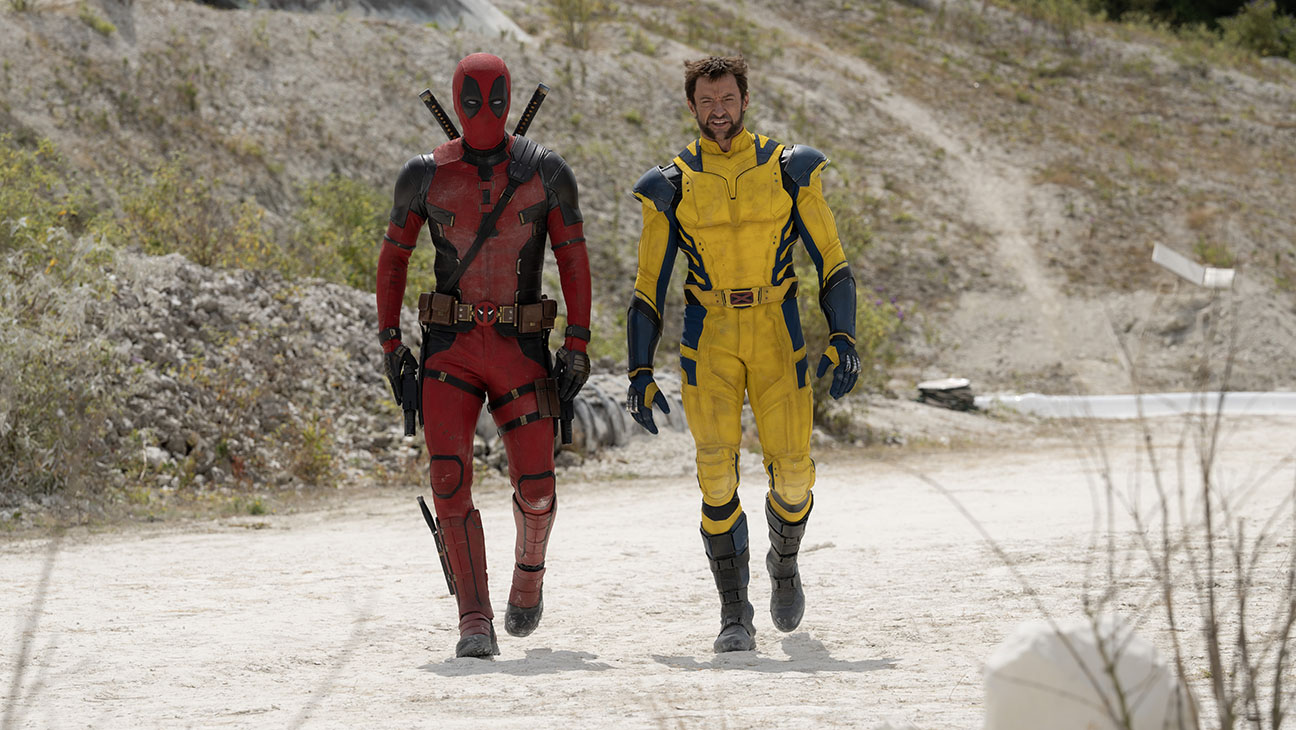
Image Credit: Jay Maidment While initial expectations may have led audiences to think that Deadpool entering the MCU would mean he’d be mixing it up with the Hulk, Hawkeye, Captain America and the rest of the Marvel stalwarts, Shawn Levy’s film takes a different and more clever approach. Serving as a swansong and celebration of 20th Century Fox’s Marvel Universe, Deadpool & Wolverine finds Wade Wilson (Reynolds) attempting to save his time from being destroyed by a rogue TVA agent, Mr. Paradox (Matthew Macfadyen), by finding a new anchor point, Wolverine (Jackman), to replace the one his universe lost (in Logan).
Deadpool’s multiversal escapades lead to him and this new Wolverine being exiled to The Void, the dumping grounds of the multiverse, ruled over by the twin sister of Charles Xavier, Cassandra Nova (Emma Corrin), one of the X-Men comics most terrifying villains. Deadpool & Wolverine not only proves to be a winning buddy movie but a celebration of both characters and the history of the X-Men franchise. The plot is largely straight-forward, as has become customary for Deadpool movies, but again it’s the thematic resonance of finding purpose in a multiverse that has moved on and become populated with bigger characters. Deadpool & Wolverine proves that wherever the MCU goes next, there will always be a place for the Merc with the Mouth.
-
3. X-Men: First Class (2011)
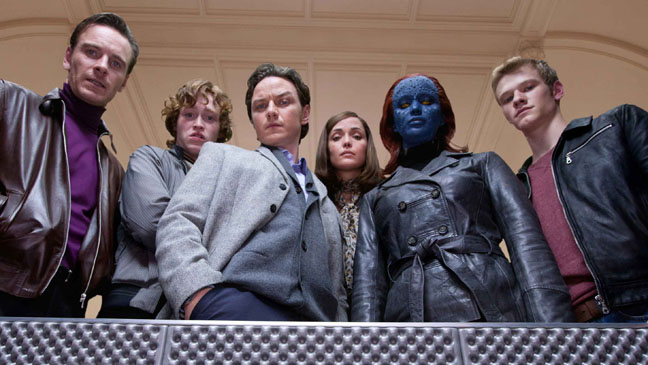
Image Credit: 20th Century Fox After The Last Stand and Origins had the X-franchise on the ropes, Matthew Vaughn rejuvenated the series with X-Men: First Class, taking the X-men back to their inception: the swinging ’60s! First Class centers on Charles Xavier (McAvoy) and Erik Lehnsherr (Fassbender), two mutants with very different upbringings who bond over their shared dreams for mutants. Mystique (Lawrence), Xavier’s childhood friend feels torn between her allegiance to Xavier and her dream of co-existence between mutant and man, and Magneto’s vision of mutant dominance in which they no longer have to hide their true selves or the extent of their powers.
The title, First Class, can be looked at simply in terms of the initial group of students trained by Xavier and Magneto, but also in its class divisions between humans and mutants, and Xavier, Mystique and Magneto, which adds an interesting layer to their respective visions for mutantkind. On the behest of the CIA’s Division X, and its liaison Moira MacTaggert, Xavier and Magneto recruit and train mutants Beast (Hoult), Angel (Zoe Kravitz), Banshee (Caleb Landry Jones), Darwin (Edi Gathegi) and Havok (Lucas Till). When the Hellfire Club, led by mutant Sebastian Shaw (Kevin Bacon) and his partner Emma Frost (January Jones), try to create WWIII by manipulating the Cuban Missile Crisis, the X-Men are forced to intervene. Vaughn’s sensibilities bring a refreshing love for comic books and their aesthetic to the table, something the prior X-films at this point were largely lacking. There’s a lack of self-consciousness from the filmmaker that allows First Class to have some of that early James Bond charm and be a little silly, while still delivering the emotional punch that sees Xavier and Magneto’s unified dream ending in tragedy and heartbreak.
-
2. X-Men: Days of Future Past (2014)
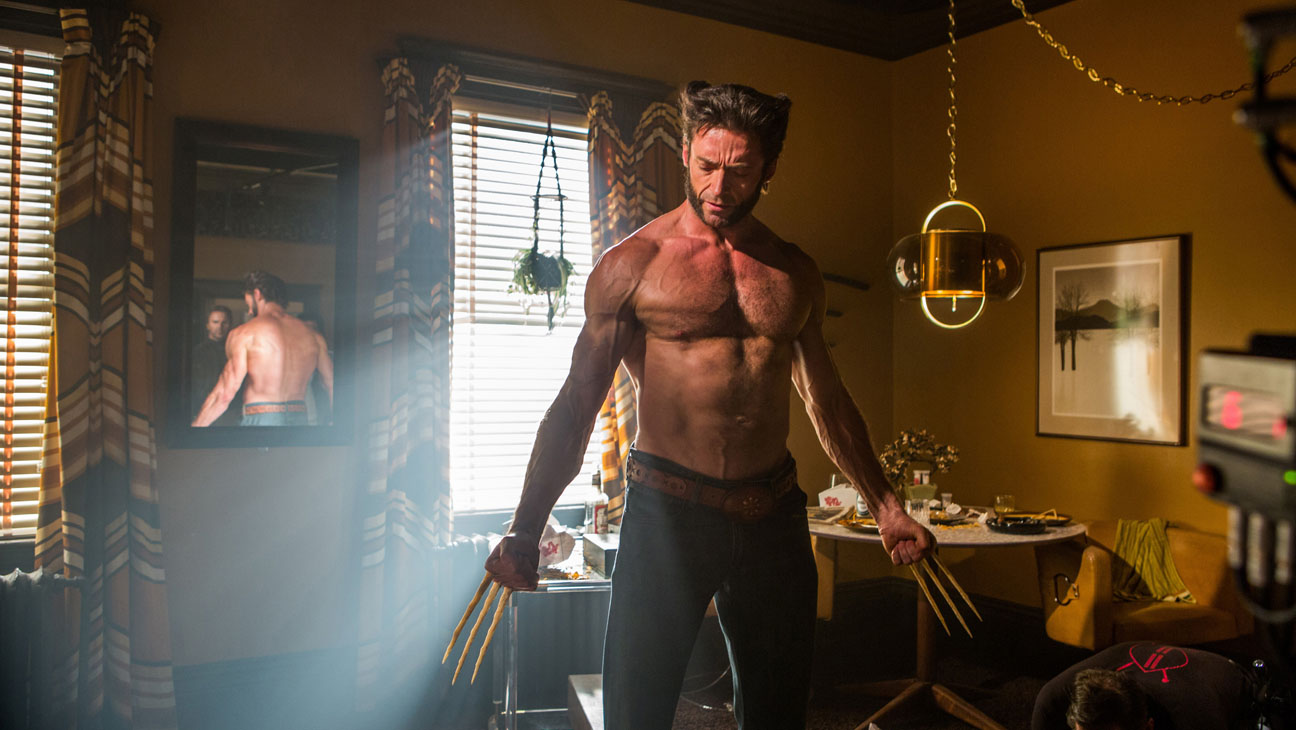
After The Avengers changed the scope of superhero movies, Fox needed to find a means to make the X-Men a bigger deal. First Class ended its run with strong reviews but was only a modest success, and in 2011, a sequel was not guaranteed. The X-Men needed a big idea, and while you might be tired of hearing his name at this point, Chris Claremont, and John Byrne, had delivered on that big idea that was needed back in 1981’s Days of Future Past.
Days of Future Past not only provided the opportunity to adapt one of the X-Men’s most popular story arcs, but also made both a sequel to First Class and a legacy sequel to The Last Stand by bringing back the original X-Men cast alongside the recruits. In a dystopian future where mutants are hunted by robotic Sentinels, the X-Men make a last-ditch effort to change their future by altering the past. While the film does bring Wolverine (Jackman) back in a central role, with Kitty Pryde (Page) sending Wolverine’s mind back to his past body in the ’70s, the true lead of this film is Mystique (Lawrence). The government’s militarized effort in hunting and imprisoning mutants in concentration camps is the result of Mystique killing the creator of the Sentinels, Bolivar Trask (Peter Dinklage). On the behest of Xavier (Stewart), Wolverine is forced to find Xavier (McAvoy) in the past and get him to stop Mystique, which he can only do with the help of Magneto (Fassbender).
What’s fascinating here is that Mystique is tracked down by two men who believe they have some power over her, only for the fate of the future to come down to her freewill, and an action she chooses because she wants to. It’s quite a unique character development for the mutant who was the mostly silent, sexy henchwoman figure at the start of the franchise in 2000. In addition, Quicksilver’s (Evan Peters) scene-stealing moment, The Xaviers’ conversation with each other across time and the casualty-heavy sentinel battle in the future are all highlights. But the ending, one that visits a future saved, and old friends Cyclops (Marsden), Jean Grey (Janssen), Storm (Berry), Beast (Grammar) and Rogue (Paquin), reunited. As much as I do appreciate Apocalypse and Dark Phoenix, it is understandable why many believe this was the perfect means to end the franchise, minus the Deadpool films, of course. But then if that were the case, we would’ve missed out on the franchise’s best entry…
-
1. Logan (2017)
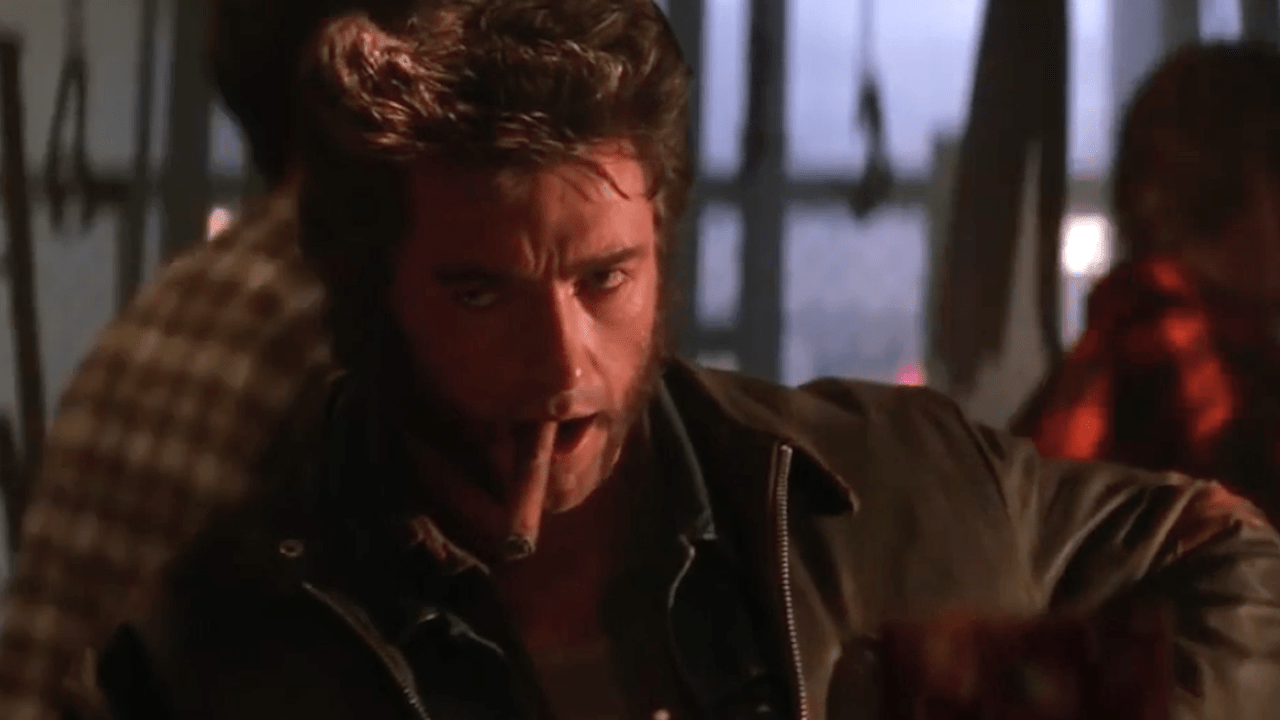
James Mangold brings Wolverine’s story to an end, at least for the iteration of the character audiences were introduced to in 2000’s X-Men. Although, like some past filmmakers in the franchise, Mangold was not a comic book fan, he delivered one of the very best. Loosely inspired by Mark Millar and Steve McNiven’s Old Man Logan, Logan finds its titular character serving as caretaker for Xavier (Stewart), whose telepathy in his advanced age resulted in him accidentally killing the X-Men. When Logan is tasked to protect a young girl, Laura (Dafne Keen), who was created in a lab and is biologically his daughter, the trio goes on the road to reach a refugee camp called Eden.
The film’s intense, brutal, and bloody fight scenes, which audiences have craved since the character was introduced onscreen, don’t come without heartbreak. Mangold creates purposeful violence, and while there is a certain fun in seeing Logan tear the Reavers apart, no act is ever committed without consequence or loss. Logan is a movie about confronting oneself and learning to live with and die with the legacy you created. Hunted by Pierce (Boyd Holbrook), the head of security at the rebranded Weapon X program, Transigen, Logan is forced to contend with two mirrors of himself. Laura respects the best of him, his heart. While, X-24, a clone of Logan without any of his humanity is Logan’s most brutal side, the side he most fears.
The film presents a psychologically complex portrait of the most popular X-Man and sets him in a dystopian western that may not commit to the flashiness of the comics, or even its primary source material. But it does work as a character study and isn’t afraid to end things on a downbeat note. The result is a film that is not only simply a great comic book film, but a great film altogether.

